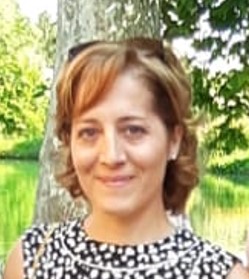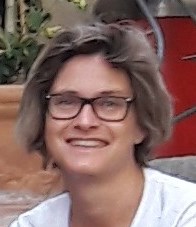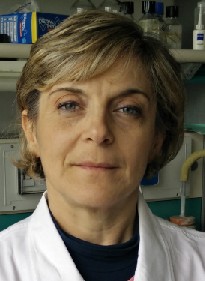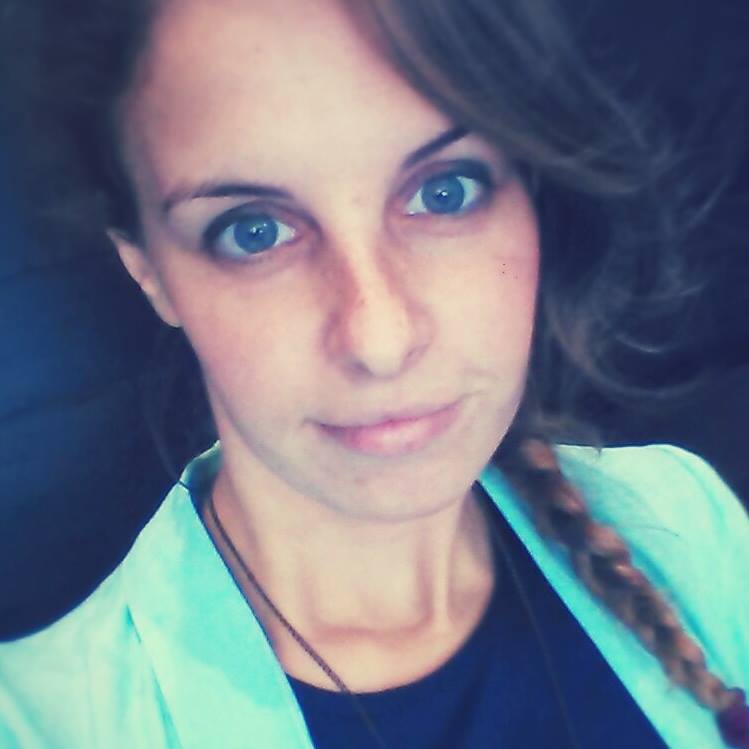Studying at the University of Verona
Here you can find information on the organisational aspects of the Programme, lecture timetables, learning activities and useful contact details for your time at the University, from enrolment to graduation.
Academic calendar
The academic calendar shows the deadlines and scheduled events that are relevant to students, teaching and technical-administrative staff of the University. Public holidays and University closures are also indicated. The academic year normally begins on 1 October each year and ends on 30 September of the following year.
Course calendar
The Academic Calendar sets out the degree programme lecture and exam timetables, as well as the relevant university closure dates..
| Period | From | To |
|---|---|---|
| FISIO ROV 2^ ANNO - 1^ SEMESTRE | Oct 1, 2015 | Nov 27, 2015 |
| FISIO ROV 1^ ANNO - 1^ SEMESTRE | Oct 6, 2015 | Dec 15, 2015 |
| FISIO ROV 3^ ANNO - 1^ SEMESTRE | Nov 9, 2015 | Dec 16, 2015 |
| FISIO ROV 3^ ANNO - 2^ SEMESTRE | Dec 17, 2015 | Feb 5, 2016 |
| FISIO ROV 2^ ANNO - 2^ SEMESTRE | Feb 22, 2016 | Apr 15, 2016 |
| FISIO ROV 1^ ANNO - 2^ SEMESTRE | Feb 29, 2016 | Apr 29, 2016 |
| Session | From | To |
|---|---|---|
| FISIO ROV SESSIONE INVERNALE 2 ANNO | Dec 9, 2015 | Jan 15, 2016 |
| FISIO ROV SESSIONE INVERNALE 1 ANNO | Jan 7, 2016 | Jan 29, 2016 |
| FISIO ROV SESSIONE INVERNALE 3 ANNO (1 periodo) | Feb 15, 2016 | Feb 26, 2016 |
| FISIO ROV SESSIONE INVERNALE 3 ANNO (2 periodo) | Apr 18, 2016 | Apr 29, 2016 |
| FISIO ROV SESSIONE ESTIVA 2 ANNO | May 23, 2016 | Jun 17, 2016 |
| FISIO ROV SESSIONE ESTIVA 3 ANNO | Jun 27, 2016 | Jul 29, 2016 |
| FISIO ROV SESSIONE ESTIVA 1 ANNO | Jul 1, 2016 | Jul 29, 2016 |
| FISIO ROV SESSIONE AUTUNNALE | Sep 1, 2016 | Sep 30, 2016 |
| Session | From | To |
|---|---|---|
| SESSIONE AUTUNNALE | Nov 1, 2016 | Dec 31, 2016 |
| SESSIONE PRIMAVERILE | Mar 1, 2017 | Apr 30, 2017 |
| Period | From | To |
|---|---|---|
| FESTA DELL'IMMACOLATA | Dec 8, 2015 | Dec 8, 2015 |
| VACANZE DI NATALE | Dec 23, 2015 | Jan 6, 2016 |
| Vancanze di Pasqua | Mar 24, 2016 | Mar 29, 2016 |
| FESTA DELLA LIBERAZIONE | Apr 25, 2016 | Apr 25, 2016 |
| FESTA DELLA REPUBBLICA | Jun 2, 2016 | Jun 2, 2016 |
| FESTA DEL SANTO PATRONO | Aug 5, 2016 | Aug 5, 2016 |
| Vacanze estive | Aug 8, 2016 | Aug 15, 2016 |
| Description | Period | From | To |
|---|---|---|---|
| FISIO ROV 3^ ANNO - 1^ SEMESTRE (1 periodo) | FISIO ROV 3^ ANNO - 1^ SEMESTRE (1 periodo) | Oct 5, 2015 | Nov 6, 2015 |
| FISIO ROV 2^ ANNO - 1^ SEMESTRE | FISIO ROV 2^ ANNO - 1^ SEMESTRE | Jan 18, 2016 | Feb 19, 2016 |
| FISIO ROV 1^ ANNO - 1^ SEMESTRE | FISIO ROV 1^ ANNO - 1^ SEMESTRE | Feb 1, 2016 | Feb 26, 2016 |
| FISIO ROV 3^ ANNO - 1^ SEMESTRE (2 periodo) | FISIO ROV 3^ ANNO - 1^ SEMESTRE (2 periodo) | Feb 29, 2016 | Apr 8, 2016 |
| FISIO ROV 2^ ANNO - 2^ SEMESTRE (1 periodo) | FISIO ROV 2^ ANNO - 2^ SEMESTRE (1 periodo) | Apr 18, 2016 | May 13, 2016 |
| FISIO ROV 3^ ANNO - 2^ SEMESTRE (1 periodo) | FISIO ROV 3^ ANNO - 2^ SEMESTRE (1 periodo) | May 2, 2016 | Jun 10, 2016 |
| FISIO ROV 1^ ANNO - 2^ SEMESTRE | FISIO ROV 1^ ANNO - 2^ SEMESTRE | May 16, 2016 | Jun 22, 2016 |
| FISIO ROV 2^ ANNO - 2^ SEMESTRE (2 periodo) | FISIO ROV 2^ ANNO - 2^ SEMESTRE (2 periodo) | Jun 20, 2016 | Jul 26, 2016 |
| FISIO ROV 3^ ANNO - 2^ SEMESTRE (2 periodo) | FISIO ROV 3^ ANNO - 2^ SEMESTRE (2 periodo) | Sep 1, 2016 | Sep 30, 2016 |
Exam calendar
Exam dates and rounds are managed by the relevant Medicine Teaching and Student Services Unit.
To view all the exam sessions available, please use the Exam dashboard on ESSE3.
If you forgot your login details or have problems logging in, please contact the relevant IT HelpDesk, or check the login details recovery web page.
Should you have any doubts or questions, please check the Enrollment FAQs
Academic staff
 renzo.antolini@unitn.it
renzo.antolini@unitn.it
 manuela.cappuccini@apss.tn.it
manuela.cappuccini@apss.tn.it
 cembrani@apss.tn.it
cembrani@apss.tn.it
Francesconi Denis

Ghirotto Luca
 luca.ghirotto@univr.it
luca.ghirotto@univr.it
 grisenti@science.unitn.it
grisenti@science.unitn.it
 pamela.narduzzi@apss.tn.it
pamela.narduzzi@apss.tn.it
Raffaeta' Roberta
 roberta.zanoni@univr.it
roberta.zanoni@univr.it
Study Plan
The Study Plan includes all modules, teaching and learning activities that each student will need to undertake during their time at the University.
Please select your Study Plan based on your enrollment year.
1° Year
| Modules | Credits | TAF | SSD |
|---|
2° Year activated in the A.Y. 2016/2017
| Modules | Credits | TAF | SSD |
|---|
3° Year activated in the A.Y. 2017/2018
| Modules | Credits | TAF | SSD |
|---|
| Modules | Credits | TAF | SSD |
|---|
| Modules | Credits | TAF | SSD |
|---|
| Modules | Credits | TAF | SSD |
|---|
Legend | Type of training activity (TTA)
TAF (Type of Educational Activity) All courses and activities are classified into different types of educational activities, indicated by a letter.
Legal, bioethic and deontological principles of professional practice - DINAMICHE RELAZIONALI NEL LAVORO DI GRUPPO (2017/2018)
Teaching code
4S000034
Teacher
Credits
1
Language
Italian
Scientific Disciplinary Sector (SSD)
M-PSI/06 - WORK AND ORGANIZATIONAL PSYCHOLOGY
Period
FISIO ROV 3^ ANNO - 2^ SEMESTRE dal Feb 12, 2018 al Mar 28, 2018.
Location
ROVERETO
To show the organization of the course that includes this module, follow this link: Course organization
Learning outcomes
The general educational objective of the course consists in providing basic theoretical and practical knowledge concerning the work group dynamics. The paradigmatic reference is the System Theory and Systemic Psychology. The specific educational objectives are: knowledge of the elements, relationships and main stages of the working groups, and ability to analyze the modalities of intervention.
The course consists of frontal lectures and dialogic moments. Students are encouraged to participate in class discussions and case studies analysis starting from the professional experience already acquired.
Program
The course implies five meetings of two academic hours each, for a total of 10 academic hours.
The course program is the following:
- introduction to the course
- relational ontology
- systemic theory of groups
- training and group management
- practical and experiential aspects of the group dynamics
- conclusions.
Teaching materials: course' powerpoint arranged by the teacher; class' notes; excerpt from suggested books.
Recommended Bibliography (the following books are suggested for those intended to deepen the theme of the course; it is NOT required to buy them):
- Quaglino G.P., Casagrande S., Castellano A. (1992). Gruppo di lavoro, lavoro di gruppo. Raffaello Cortina Editore, Milano.
- Quaglino G.P., Cortese C. G. (2003). Gioco di squadra. Come un gruppo di lavoro può diventare una squadra eccellente. Raffaello Cortina Editore.
- Malaguti D. (2007). Fare squadra. Psicologia dei gruppi di lavoro. il Mulino.
- De Grada E. (2000). Fondamenti di psicologia dei gruppi. Carrocci, Roma.
- Anzieu D., Marin J.Y. (2010). Dinamica dei piccoli gruppi. Edizioni Borla, Roma.
- Brown R. (2000). Psicologia sociale dei gruppi. Il Mulino, Bologna.
- Trevisani D. (2016). Team leadership e comunicazione operativa. Principi e pratiche per il miglioramento continuo individuale e di team. Franco Angeli, Milano.
- de Vries M. K. (2015). Mindful leadership coaching. Percorsi verso una leadership consapevole. FerrariSinibaldi Editori.
| Author | Title | Publishing house | Year | ISBN | Notes |
|---|---|---|---|---|---|
| Malaguti D. | Fare squadra. Psicologia dei gruppi di lavoro (Edizione 2) | il Mulino | 2018 | ||
| Quaglino, G.P.; Cortese, C. G. | Gioco di squadra. Come un gruppo di lavoro può diventare una squadra eccellente | Raffaello Cortina Editore | 2003 | ||
| Quaglino G.P., Casagrande S., Castellano A. | Gruppo di lavoro - Lavoro di gruppo | Cortina | 1992 |
Examination Methods
Students, in groups of four to six elements, are invited to produce an oral presentation to the class in the form of 'case study' on a topic to be discussed with the lecturer. The presentation, to be done during the last lesson of the course, will be then extended and deepened in the form of a group final report, which will constitute material for the evaluation. Students must also provide an individual report on another topic to be agreed with the lecturer, still in the form of 'case study'. Both these reports should include the topics discussed during the lessons and/or the didactical material provided by the lecturer.
The evaluation will be based on the following works:
- participation during lessons;
- in-class power point presentation of the group's work;
- written report of the group on the case study;
- individual report on case study.
For the final mark, each student has 13 points available, from 18/30 to 30/30 included:
a. 1 point for participation in class;
b. 6 points for group works, with special attention to the coherence, consistency, originality and strength of the power point presentation in the classroom and the final report;
b. 6 points for individual work.
Laude is assigned to outstanding works.
Marks of this module will be sent to Prof. Luca Fabbri, head of the whole course, which will compose the final mark based on the marks other modules belonging to the same course. He will communicate the final marks to the students. Students can write directly to the lecturer or the present module in order the know their mark.
The length of the reports must approximately be 2/3 pages for each group's component, and about 3/4 pages for the individual works. A group of 4 students, therefore, will send a report between 8 and 12 pages. It must be written with font 12 and line spacing 1.5. Those who want to exceed these limits are welcome. However, I want to remark that an increased length of the paper does not always coincide with higher quality.
The group's report must also include a part of self-analysis of group dynamics. I recommend to analyze the entire period in which the group worked together, from the first lesson to the final moment, defining:
- Group formation modalities
- The selection modalities of the theme (noosphere partition)
- Modes of formation of roles and assignment of sub-themes to individuals
- Potential conflicts and resolution of conflicts
- Integration of new elements in the group
- Distribuition and administration of meetings and workloads
- Management of the final presentation and final reports.
The deadline for submission of material will be discussed and decided in accordance with the students. For the evaluation, the following material must be sent to the lecturer:
- Power point of the final presentation;
- Group report;
- Individual report.
In each document, please provide the name of the group and members.
I am available for any clarification.
Career prospects
Module/Programme news
News for students
There you will find information, resources and services useful during your time at the University (Student’s exam record, your study plan on ESSE3, Distance Learning courses, university email account, office forms, administrative procedures, etc.). You can log into MyUnivr with your GIA login details: only in this way will you be able to receive notification of all the notices from your teachers and your secretariat via email and soon also via the Univr app.
Graduation
Documents
| Title | Info File |
|---|---|
|
|
pdf, it, 367 KB, 19/02/24 |
|
|
pdf, it, 142 KB, 19/01/24 |
|
|
pdf, it, 862 KB, 19/01/24 |
|
|
pdf, it, 273 KB, 25/03/24 |
Gestione carriere
Orario lezioni
Documents
| Title | Info File |
|---|---|
|
|
pdf, it, 525 KB, 22/09/23 |
|
|
pdf, it, 39 KB, 17/04/24 |
|
|
pdf, it, 33 KB, 17/04/24 |
|
|
pdf, it, 1453 KB, 07/02/24 |
Student login and resources
Attività Seminariali/a scelta dello studente
Attività Seminariali/a scelta dello studente

 +39 045 812 7124
+39 045 812 7124















